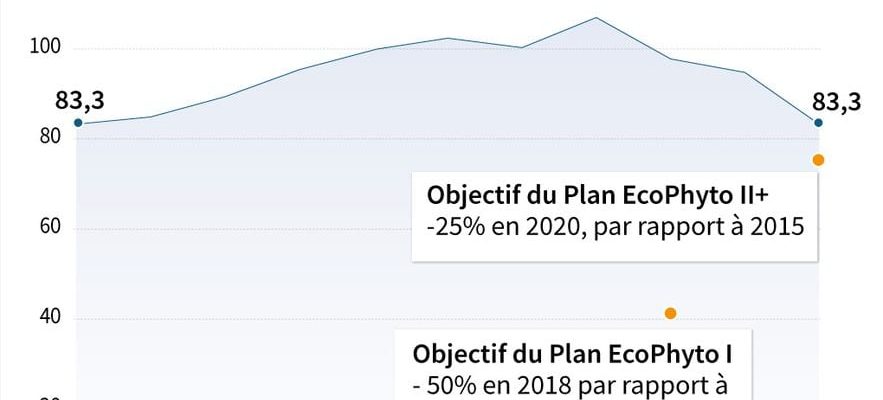This is one of the many measures announced Thursday during a press conference in Matignon. Gabriel Attal indicated that he would take “without delay” a “safeguard clause” in order to prevent the importation into France of fruits and vegetables treated with the pesticide thiacloprid, a product banned in Europe.
This decision represents, according to the Prime Minister, an example of a “safeguard clause” or “mirror measure” – a mechanism which requires imported products to respect the same rules as those imposed on European farmers -, which France can take to avoid “unfair competition”.
Available since the mid-1990s, neurotoxic products like thiacloprid are commonly used insecticides around the world. Thiacloprid, a substance accused of contributing to the massive decline of bee colonies and other pollinators, has been banned in France since September 1, 2018, like other neonicotinoid-based products.
But until now this product had not completely disappeared. If a farmer from a non-EU country used it in his fields, the products he exported to France were not in fact subject to a ban. This situation of unfair competition has been denounced by many farmers, whose anger has been expressed in France in recent days.
A potential endocrine disruptor
Thiacloprid is part of a family of insecticides often described as “bee killers”, the neonicotinoids. It is a product developed by the Bayer company, under the names “Calypso” and “Biscaya”. It allows, among other things, to fight against aphids and Colorado potato beetles, two insects which attack rapeseed, corn, beet and potato crops, remember Le Figaro.
On October 22, 2019, the European Union indicated that it did not intend to renew the authorization of thiacloprid, the license for which expired in April 2020. The substance is therefore prohibited for any agricultural use in EU member countries. since 2020. Thiacloprid, like clothianidin and thiamethoxam, has been classified as a “suspected endocrine disruptor” by the European Commission. It is classified as category 1B reprotoxic for its effects on sexual function and fertility.
In January 2019, Efsa, the European food safety agency, issued an unfavorable opinion and considered that thiacloprid “should not meet the approval criteria”, according to an agency spokesperson. Its properties as an endocrine disruptor had already made it a “candidate for substitution”, that is to say a pesticide for which national authorities must carry out an assessment to establish whether alternatives – including non-chemical methods – exist, the European Commission then recalled. Efsa had notably highlighted a problem of “concentration in groundwater”identified “as a matter of concern”.
Pesticides in France
© / AFP
A product suspected of being carcinogenic
In a notice dated November 7, 2017the National Agency for Food, Environmental and Occupational Health Safety (ANSES) had estimated “that in view of the danger characteristics of thiacloprid, elements on increasing exposures and uncertainties, it is desirable to reduce as much as possible the uses of products based on this substance from 2018”.
ANSES recalled that thiacloprid was classified in May 2017 as a category 2 carcinogen, that is to say a substance suspected of being carcinogenic to humans, following a proposal from the evaluation committee. of the European Chemicals Agency.
Additionally, thiacloprid caused malignant uterine tumors and benign thyroid tumors in rats as well as benign ovarian tumors in mice. Additionally, in rat studies, dystocia and effects on embryo-fetal development were observed.
